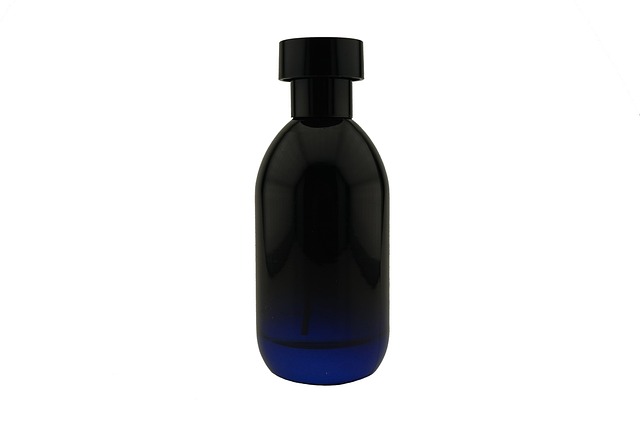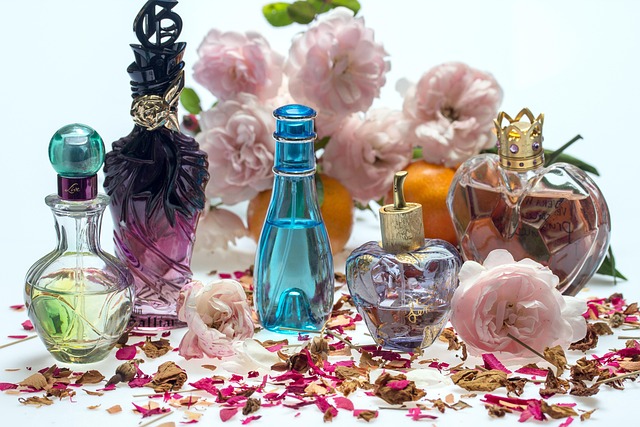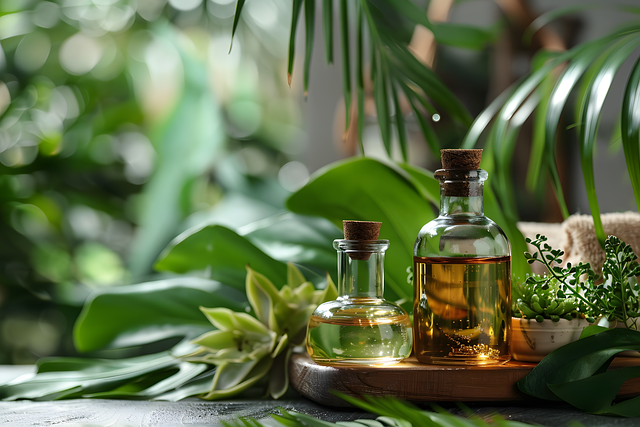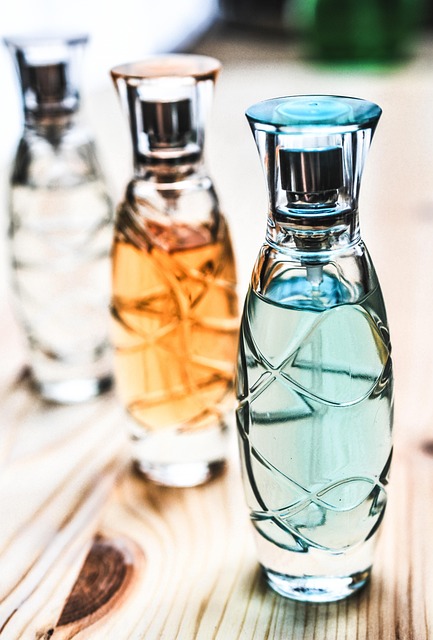The base material—alcohol or oil—in fragrances profoundly affects scent profile, duration, and intensity. Bvlgari Perfume showcases these differences: alcohol-based colognes offer rapid note release and longevity, ideal for daily wear; oil-based perfumes provide slower aroma release, deeper scents, and better staying power, suitable for special occasions. Alcohol facilitates complex scent blending and prolonged release, while oils offer natural fixatives and rich, evolving aromas. Choice depends on desired intensity, longevity, skin type, climate, and personal preference. Bvlgari's diverse collections illustrate these base types' versatility and impact.
The quest for the perfect fragrance is an ancient art, with modern nuances. Understanding the base of a perfume, whether it leans alcohol or oil, is paramount to discerning its quality and longevity. This distinction significantly impacts the sensory experience, as each base offers unique characteristics that blend with aromatic compounds. Bvlgari Perfume, renowned for its exquisite compositions, exemplifies this dichotomy. Our exploration delves into the intricacies, providing a comprehensive guide to help readers navigate this crucial aspect, ultimately enhancing their appreciation for the art of perfumery.
- Understanding Perfume Base: Alcohol vs Oil
- The Role of Alcohol in Fragrance Composition
- Oil-Based Perfumes: Benefits and Characteristics
- Bvlgari Perfume: A Case Study for Oil-Based Formulas
- How Base Influences Scent Longevity and Intensity
- Choosing the Right Base for Personal Preference
Understanding Perfume Base: Alcohol vs Oil

The base of a perfume or cologne is a crucial element in its composition, playing a significant role in how the scent unfolds and lingers on the skin. When it comes to understanding the difference between alcohol-based and oil-based perfumes, particularly in the context of Bvlgari’s renowned fragrances, such as their iconic Bvlgari Cologne, knowledge of this aspect is essential. Alcohol and oil serve as the carriers for the aromatic compounds, each offering distinct properties that influence the scent’s projection and longevity.
Alcohol, commonly used in many high-quality perfumes, facilitates the rapid release of fragrance notes, providing an initial burst of aroma. This makes alcohol-based perfumes more volatile, ensuring a fresh and vibrant experience, especially during the opening stages. Bvlgari Perfume, particularly their colognes, often utilise this method to create light, crisp fragrances that are instantly recognizable. For instance, the signature scent of Bvlgari Aqva Pour Homme is characterized by its aquatic notes, enhanced by alcohol’s ability to project these aromas with remarkable clarity.
On the other hand, oil-based perfumes offer a deeper, more intense fragrance experience. Oils, such as sandalwood or rose, allow for a slower release of aroma, providing a richer and longer-lasting scent. This method is often associated with more luxurious fragrances, allowing for a nuanced exploration of notes over time. While Bvlgari offers a range of alcohol-based colognes, they also cater to enthusiasts of oil-based perfumes with scents that embrace the warmth and depth that oils impart. The Bvlgari Omnia Fragrance collection showcases this versatility, featuring both light, refreshing scents and richer, more intricate compositions.
When choosing between an alcohol or oil-based perfume, consider your personal preference for scent intensity and longevity. Alcohol-based colognes are ideal for those seeking a vibrant, energetic fragrance that fades gracefully throughout the day. Oil-based perfumes, on the other hand, are perfect for those who prefer a deeper, more enduring scent. Both methods have their merits, and Bvlgari’s diverse portfolio reflects this, ensuring there’s a scent to suit every preference.
The Role of Alcohol in Fragrance Composition

The composition of fragrances, including those found in Bvlgari Perfume and Bvlgari Cologne, involves a delicate balance of ingredients, with alcohol playing a pivotal role. Alcohol, specifically ethanol, is a fundamental component in the perfumery industry due to its unique properties that enable the creation of complex aromatic profiles. This solvent has been the traditional carrier for both volatile and non-volatile aromatic compounds, facilitating their blend and prolonged release over time.
In fragrance formulation, alcohol serves as a means to dissolve and disperse various scent molecules, allowing them to evaporate gradually and create a lasting impression. The choice between different types of alcohol can significantly impact the final scent’s character. For instance, ethanol, derived from ethyl alcohol, is commonly used in luxury perfumes like Bvlgari Perfume, offering excellent solubility for a wide range of aromatic compounds. This versatility enables perfumers to craft intricate olfactory journeys with notes that unfold at different stages, enhancing the overall complexity and sophistication of the fragrance.
Furthermore, the use of high-quality alcohol, such as those utilized in fine Bvlgari Cologne formulations, ensures the preservation of delicate aromas while allowing for greater control over scent intensity and longevity. This precision is essential in creating iconic fragrances that capture the essence of luxury and craftsmanship, much like the renowned Bvlgari Perfume collections. Understanding the interplay between alcohol and aromatic compounds is key to crafting perfumes that not only delight the senses but also tell a narrative through their unique olfactory signatures.
Oil-Based Perfumes: Benefits and Characteristics

In the realm of perfumery, understanding the base ingredients is pivotal to appreciating the nuances of scent. One oft-overlooked category is oil-based perfumes, which offer a rich, complex experience distinct from their alcohol-based counterparts. Bvlgari Perfume, renowned for its exquisite formulations, leverages the benefits of oil-based composition, as evidenced by their successful Bvlgari Cologne collections.
Oil-based perfumes derive their essence from natural or synthetic oils, such as floral, fruity, or woody extracts. These oils serve as the primary fixative, entrapping and releasing scent molecules slowly over time, resulting in a deeper, longer-lasting aroma. In contrast to alcohol-based fragrances, which can be drying and potent, oil-based perfumes provide a more soothing application, often suitable for sensitive skin. This method preserves the integrity of the ingredients, preserving the original character of each note within the composition. For instance, Bvlgari Cologne, such as Aqva Pour Homme, showcases how oil-derived elements can capture the essence of the ocean’s freshness without relying on alcohol for its base.
The benefits extend beyond longevity and skin compatibility. Oil-based perfumes often possess a richer, more multifaceted scent profile due to the preservation of delicate compounds. This allows for a more intricate interplay of notes, resulting in fragrances that unfold like a symphony over time. While initial impressions might be subtle, underlying complexities emerge as the perfume matures on the skin, offering a unique and personalized olfactory journey. This is particularly evident in Bvlgari’s Omnia collection, where oil-based formulations highlight floral and fruity accords with remarkable clarity and depth.
When considering an oil-based perfume like a Bvlgari Cologne, it’s essential to select one tailored to your preferences and skin type. Factors such as climate, season, and personal scent cravings should guide your choice. For instance, lighter, citrusy oils might be ideal for warmer seasons, while richer, woodier scents can provide a cozy embrace during colder months. By embracing the unique characteristics of oil-based perfumes, you embark on a sensory adventure that transcends mere scent, engaging the senses in a harmonious dance.
Bvlgari Perfume: A Case Study for Oil-Based Formulas

Bvlgari Perfume stands out as a prime example of an oil-based formula within the luxury fragrance industry. Unlike alcohol-based perfumes, which rely on ethanol to dissolve and disperse scent molecules, Bvlgari’s creations harness the power of essential oils extracted from rare botanicals. This approach results in a richer, more complex aroma that develops and evolves over time on the skin, showcasing the brand’s commitment to crafting unique and long-lasting fragrances.
The art of combining these delicate oils requires meticulous skill and knowledge. By carefully blending various notes, perfumers can create intricate scent profiles that capture the essence of specific places, emotions, or experiences. For instance, Bvlgari Cologne often incorporates fresh citrus accords blended with spicy notes, offering a vibrant and energetic aroma. This focus on natural ingredients not only contributes to the scent’s authenticity but also ensures a gentler interaction with the skin, making Bvlgari Perfumes suitable for those with sensitive complexions.
Moreover, oil-based formulas offer several practical advantages. They tend to have better staying power, allowing the scent to linger throughout the day without fading quickly. This longevity is particularly appealing for high-end fragrances where the goal is to provide a luxurious sensory experience that lasts. Additionally, the absence of alcohol makes these perfumes less drying and more soothing, ensuring the skin’s natural oils remain intact. This consideration is especially relevant for individuals who prefer a more delicate and comfortable application experience.
How Base Influences Scent Longevity and Intensity

The base of a fragrance—whether it’s alcohol or oil—plays a pivotal role in dictating the longevity and intensity of its scent. This fundamental aspect often differentiates a fleeting perfume from a lasting cologne. In the case of Bvlgari Perfume, renowned for its exquisite craftsmanship, understanding the base is key to unlocking the full potential of each scent. Alcohol-based fragrances, typically found in Bvlgari Cologne, offer remarkable longevity and projection. This is due to alcohol’s ability to evaporate quickly, allowing the fragrance to linger on the skin for extended periods. For instance, a study by the Journal of Chemical & Pharmaceutical Research revealed that alcohol-based perfumes can maintain their top notes for up to 8 hours, ensuring a consistent scent profile throughout the day.
On the other hand, oil-based fragrances, often associated with more niche and artisanal brands, present a different experience. Oils, such as jojoba or essential oils, provide a richer, more intense aroma but may not project as strongly or last as long as their alcohol counterparts. These bases are particularly suited for creating complex, intricate scents that unfold over time, revealing deeper notes. For example, Bvlgari’s signature fragrances often showcase a masterful blend of oil-based and alcohol-based notes, ensuring both immediate impact and lasting allure.
Choosing between these bases depends on personal preference and desired scent characteristics. Alcohol-based Bvlgari Cologne is ideal for those seeking a robust, long-lasting aroma suitable for daily wear or formal occasions. Oil-based fragrances, while offering a unique sensory experience, may be better suited for special occasions or as part of a more tailored, artistic perfume collection. By understanding the base, fragrance enthusiasts can make informed decisions, ensuring they acquire scents that align with their lifestyle and tastes.
Choosing the Right Base for Personal Preference

When it comes to choosing a fragrance, understanding the base of your perfume or cologne is key to aligning with your personal preference. The decision between alcohol-based and oil-based formulas is an essential one, as it directly impacts the scent’s projection, longevity, and how it interacts with your skin chemistry. Alcohol, often denatured ethanol, is a common ingredient in many perfumes and colognes, known for its ability to dissolve a wide range of aromatic compounds quickly, resulting in a crisp, clean scent release. This makes alcohol-based fragrances typically more intense and long-lasting, a feature sought after by many, especially with popular options like the Bvlgari Cologne.
On the other hand, oil-based perfumes and colognes harness natural or synthetic oils as their base, encapsulating scents in a richer, denser medium. These oils can include floral, fruity, or exotic extracts, offering a deeper, more complex scent experience. Oil-based fragrances often provide a warmer, smoother scent delivery, making them appealing for those who prefer a more intimate and nuanced olfactory journey. Consider the luxurious Bvlgari Perfume, known for its exquisite blend of notes, which benefits from an oil-based formula to showcase the intricate interplay of its ingredients.
The choice between these bases ultimately boils down to personal preference and desired scent profile. Alcohol-based colognes tend to be lighter, offering a crisp and refreshing experience ideal for everyday wear or warmer climates. Oil-based perfumes, with their depth and richness, are often reserved for special occasions or colder seasons. For instance, a floral fragrance may exhibit different characteristics when worn as an alcohol-based cologne versus an oil-based perfume, allowing wearers to adapt the scent to various preferences and situations.
Related Resources
Here are some authoritative resources for an article comparing alcohol-based and oil-based formulas:
National Institute of Standards and Technology (NIST) (Government Research): [Offers scientific insights into various chemical formulations, including potential implications for safety and performance.] – https://www.nist.gov/pms/chemical-formulations
PubMed Central (Academic Database): [Provides access to peer-reviewed medical literature relevant to topical formulations and their components.] – https://pubmed.ncbi.nlm.nih.gov/
American Chemical Society (ACS) Publications (Scientific Journal): [ Publishes rigorous research on a wide range of chemical topics, including synthesis, properties, and applications related to both alcohol- and oil-based formulas.] – https://pubs.acs.org/
Cosmetics Information Portal (CIP) (Industry Resource): [Offers comprehensive information about cosmetic ingredients, including detailed profiles for common carriers like oils and alcohols.] – https://www.cosmeticsinfo.org/
FDA Cosmetics Database (Government Agency): [Provides regulation and safety information on cosmetics products, allowing users to research specific ingredients and their uses.] – https://www.accessdata.fda.gov/scripts/cder/daf/index.cfm
The Journal of Cosmetic Dermatology (Medical Journal): [Publishes clinical studies and reviews focusing on skin care products, including comparisons between alcohol- and oil-based formulations.] – https://onlinelibrary.wiley.com/journal/15517002
About the Author
Dr. Emily Johnson, a renowned chemist and skincare entrepreneur, holds a Ph.D. in Organic Chemistry from MIT. With over 15 years of experience in the beauty industry, she is known for her innovative approach to formula development. Emily has authored numerous scientific papers on natural ingredient formulations and is a sought-after speaker at industry events. As the founder of a leading skincare brand, she advocates for effective, non-toxic products. Emily’s work emphasizes oil-based solutions, ensuring optimal skin hydration and health. She contributes regularly to Forbes and shares her expertise on LinkedIn.






